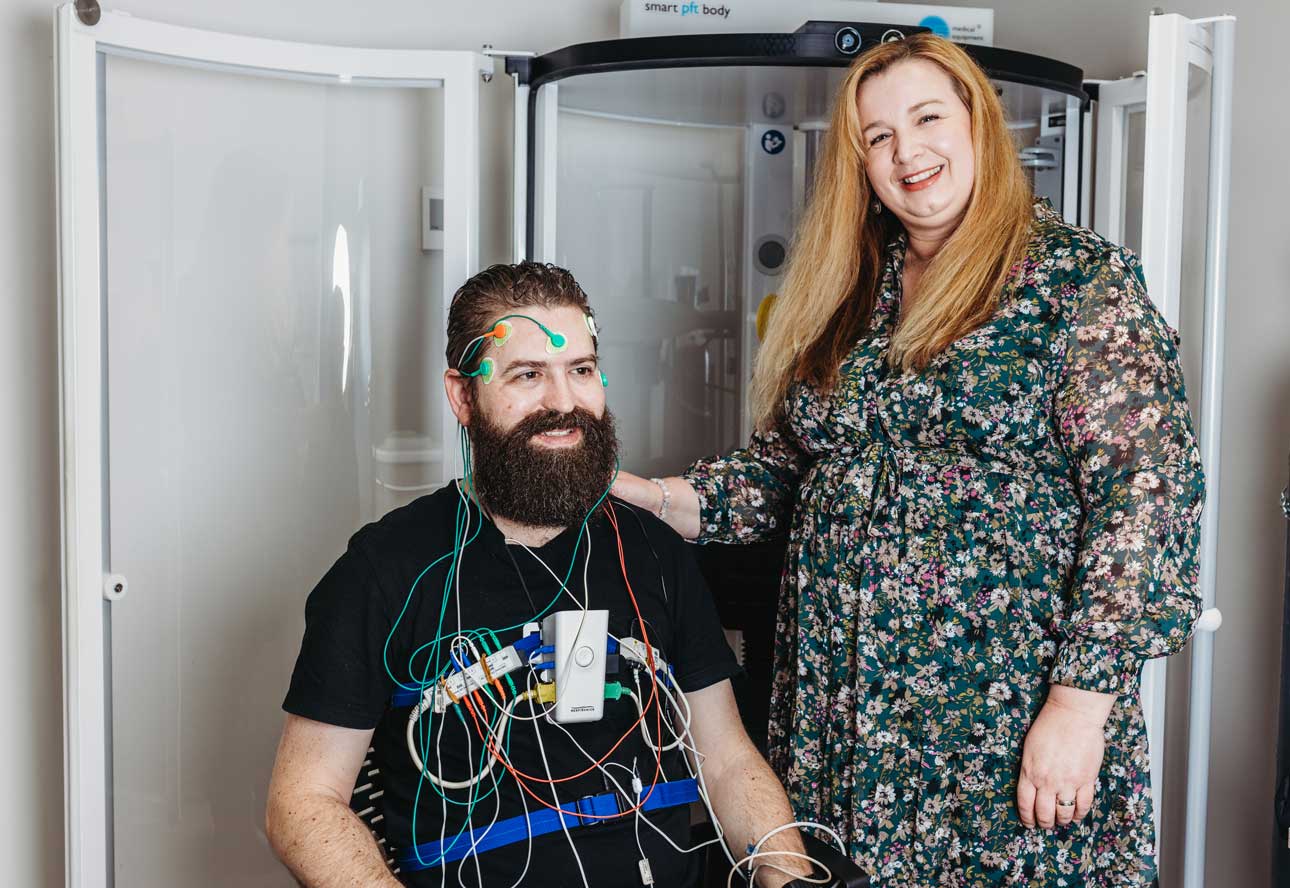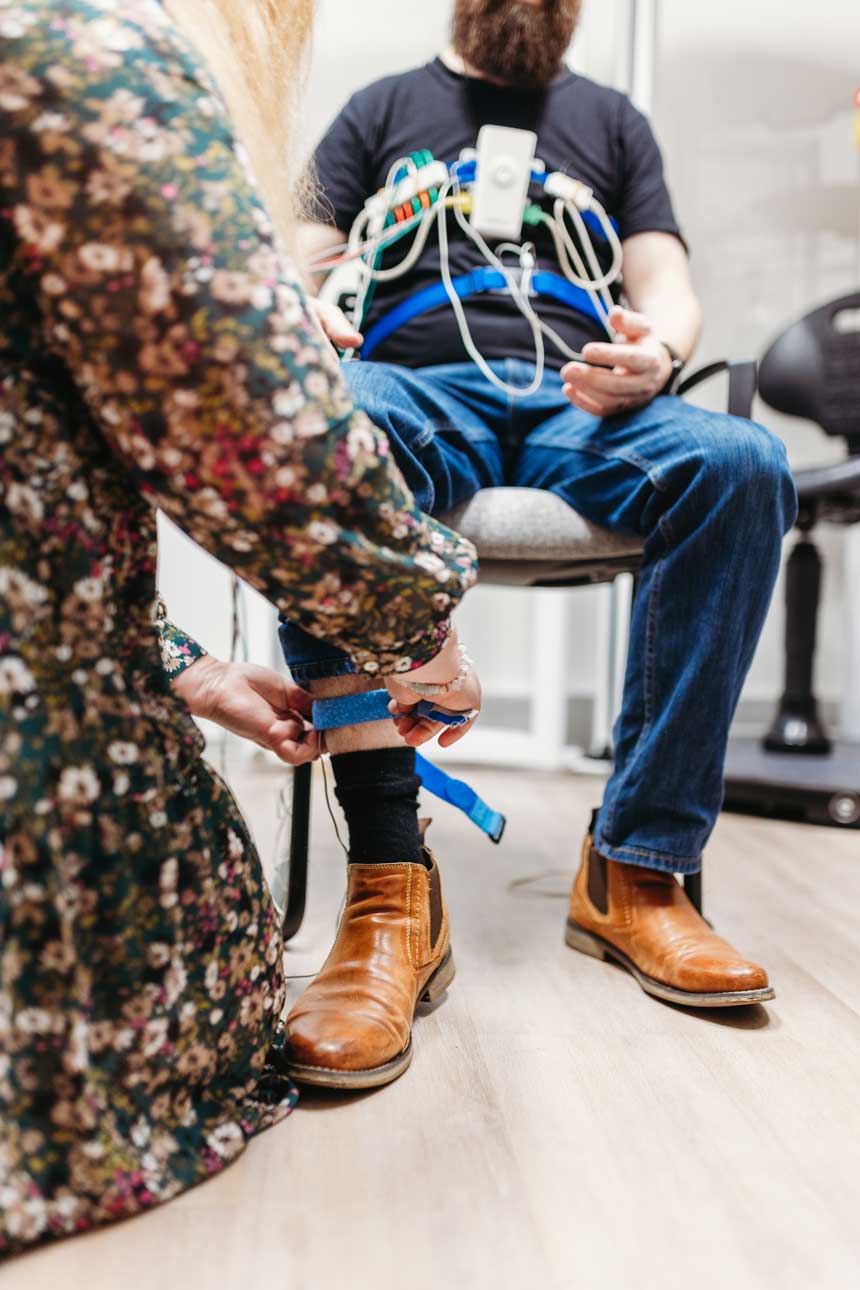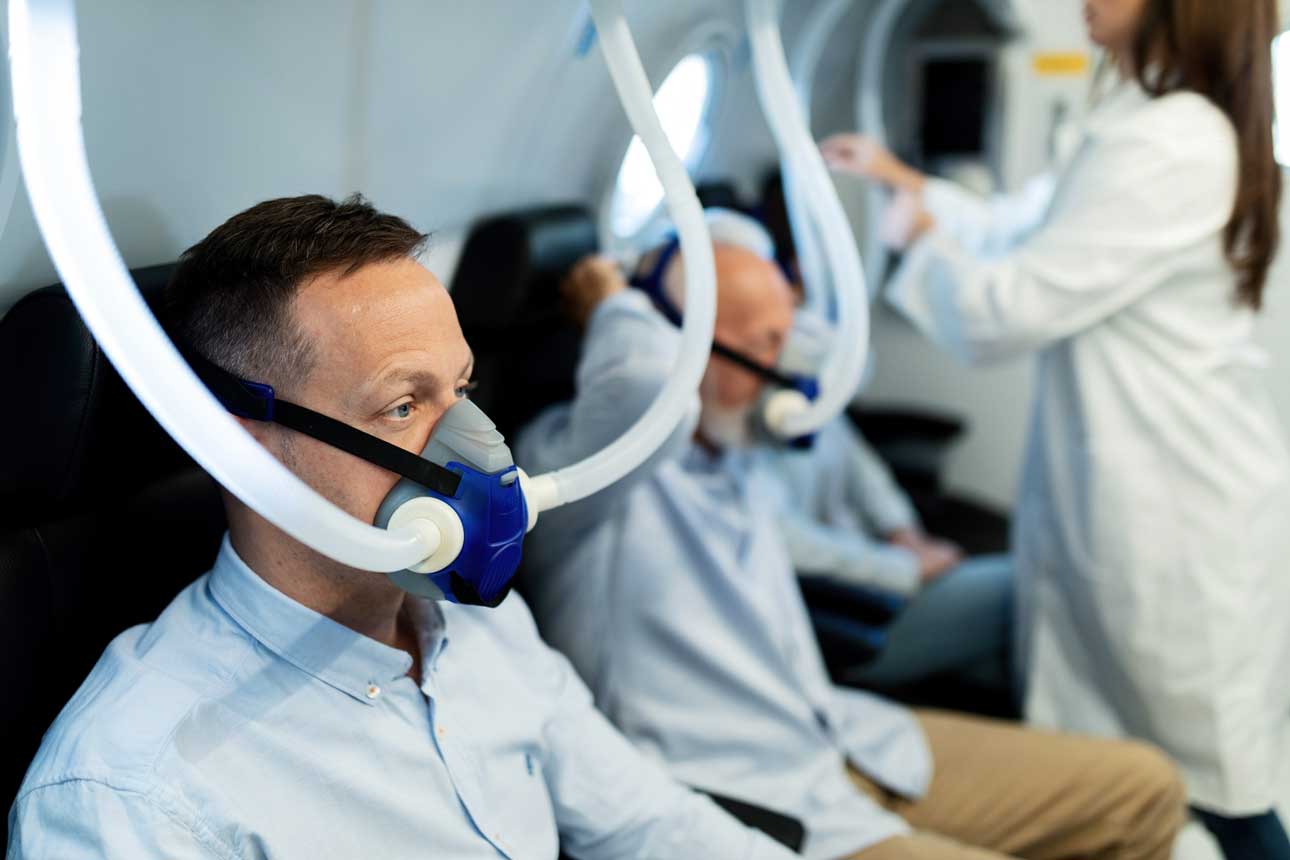- reception@swcpc.com.au
- Suite 2.12, 90 Podium Way, Oran Park New South Wales 2570, Australia
Diagnosing sleep disorders in the comfort of your home.


A home-based sleep study is a diagnostic test used to assess sleep disorders such as obstructive sleep apnoea (OSA), in the comfort of your own home. Unlike in-lab sleep studies, home-based studies allow you to maintain a natural sleep environment, making it easier to capture realistic sleep patterns.
A small, portable device is provided to monitor your breathing, heart rate, and oxygen levels as you sleep. This test is especially useful for patients who may have difficulty staying overnight in a sleep lab or for those who prefer the convenience of an at-home solution.
A home-based sleep study offers numerous advantages:
Home-based sleep studies are highly effective at diagnosing obstructive sleep apnoea. Although not as comprehensive as in-lab studies, they provide accurate data for sleep disorders.
Home studies may not be suitable for diagnosing more complex sleep disorders like narcolepsy or REM sleep behaviour disorder, which require more extensive monitoring.
To ensure accurate results, follow these preparation guidelines:
A key difference between a home-based sleep study and an in-lab sleep study is the level of monitoring. While home studies focus on respiratory aspects (like breathing and oxygen levels), in-lab studies monitor additional factors such as brain waves, muscle movements, and eye movements.
In-lab studies are often recommended if a more complex sleep disorder is suspected.


Yes, you can pause the test, go to the bathroom, and then resume. The device is designed to accommodate minor interruptions.
The test itself typically lasts for one night, but the results may take a few days to process. Your doctor will review the data and follow up with you to discuss the findings.
Yes, a referral from your GP or a specialist is required to access a Medicare-covered home sleep study.


Once your sleep study is completed, the data is analyzed by a sleep specialist. Your result will be ready approximately 2 weeks after the study. Please ensure to arrange an appointment with your physician approximately 2-4 weeks after the study to go through the results. Based on these findings, a treatment plan may be developed, which could include:
For patients diagnosed with obstructive sleep apnoea (OSA), CPAP (Continuous Positive Airway Pressure) therapy is often recommended. This involves wearing a mask that provides a constant airflow, preventing airway blockages during sleep.
Other options include mandibular advancement devices or surgery. Your physician will explain the treatment options with you.
Don’t wait—take the first step towards better sleep. A home sleep study is a convenient and effective way to get the diagnosis and treatment you need to feel rested and healthy.
Phone : (02) 4607 5010
Monday - Saturday : 08:30-16:30 Sunday : Closed






